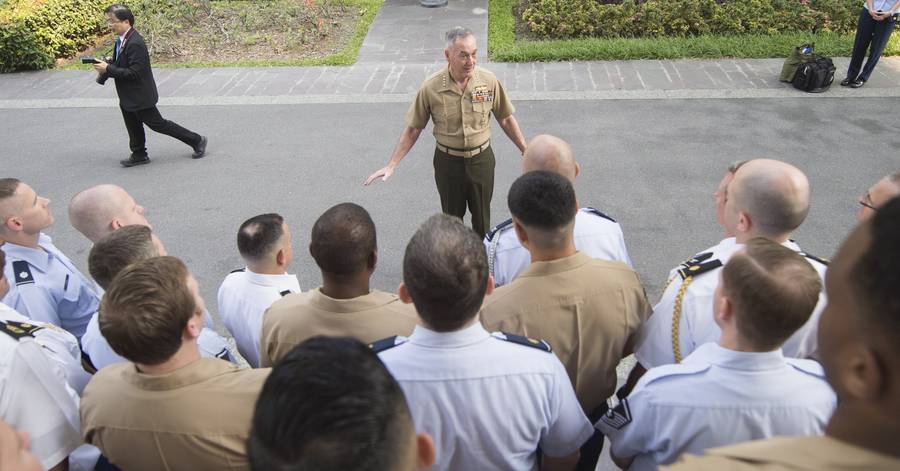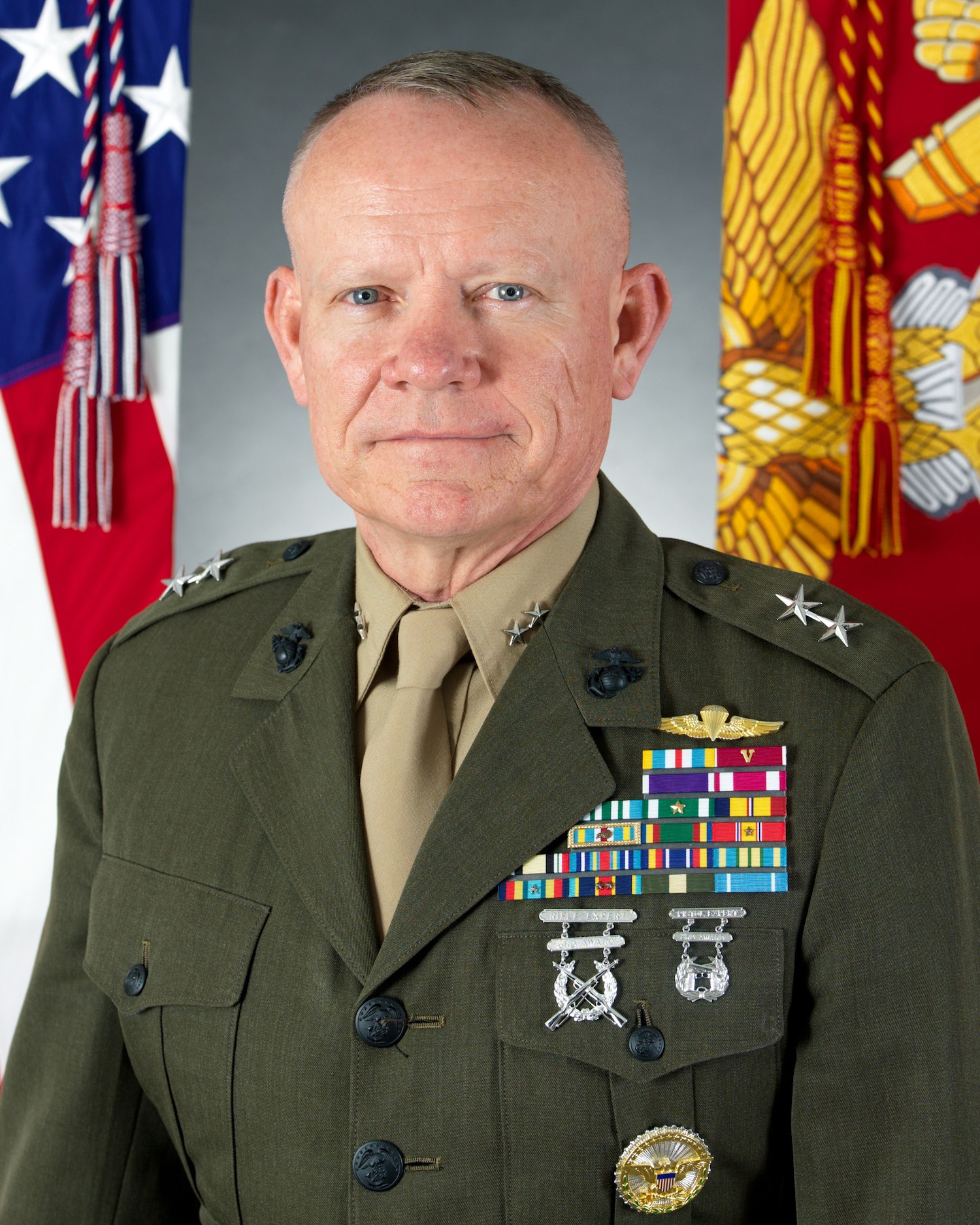
... it was possible Australian and US forces were more concerned about the military relationship than they were about properly investigating the allegations: 'ADF are actively attempting to keep it out of the public eye'

... it was possible Australian and US forces were more concerned about the military relationship than they were about properly investigating the allegations: 'ADF are actively attempting to keep it out of the public eye'

Over the past week, Gen. Dunford visited Australia, which faces its own strategic challenges with China, and toured the training base for U.S. Marines in Darwin. He also visited Thailand, now rebuilding ties to the U.S. after strains that followed a 2014 military coup.

Wilson committed numerous offences in Australia that included sexual harassment and heavy drinking, and also was suspected of drunken driving.

Japan’s military could conduct exercises out of Darwin under a historic defence agreement being negotiated by Malcolm Turnbull and Shinzo Abe, as part of a multi-pronged strategy to counter China’s growing influence in the Indo-Pacific.
The wide-ranging agreement, which will also allow military equipment and ammunition to be transported far more easily between the countries, will be progressed during the Prime Minister’s trip to Tokyo next week, as Australia faces a growing row with China over government criticism of Beijing’s Pacific aid.
Mr Turnbull will arrive in Tokyo on Thursday to meet the Japanese Prime Minister, who has been keen to amend his country’s post-World War II constitution to give the military a more legitimate role on the world stage. The trip follows Mr Abe’s visit to Australia last year.
Australia and Japan have championed building up regional alliances — such as the revived Quadrilateral Security Dialogue between Japan, India, the USA and Australia — in the face of China’s increasing dominance in the region.
Mr Turnbull has said he and Mr Abe will discuss a new visiting forces agreement, a type of arrangement that Japan has with one other country — the USA.
Australian Strategic Policy Institute head Peter Jennings said he expected the deal would allow for Japanese forces to conduct exercises in Australia.
"I’d expect there’d be an opportunity for more army engagement, including, ironically enough, perhaps out at Darwin, maybe doing trilateral activities with the US marines there.”
the deal is expected to be signed this year, paving the way for the Japanese Self-Defence Force troops to train in Australia.

US FORCES would get the nod from a future federal Labor Government to expand its military footprint in Australia in an apparent reversal of party policy that had seen a cooling in language on the alliance in favour of a greater focus on China.
Two years ago the party’s platform draft at its national conference watered down its foreign policy view of the ANZUS Treaty, significantly dropping references to it being the “bedrock” of regional stability and a national “asset” in favour of strengthening recognition to China’s growth.
Late last year former Labor leader Paul Keating called for Australia to “cut the tag” with the US and focus more on Asia while foreign affairs spokeswoman Penny Wong said Donald Trump marked a “change point” that needed to be assessed.
But Labor’s Defence spokesman Richard Marles said yesterday there was room to work with both with America as Australia’s “most important bilateral relationship” and China whose right to rise as a power should be recognised.
The US already has a strong presence in Australia with its annual rotation of 1250 US Marines and a dozen combat aircraft through Darwin in the Northern Territory, joint intelligence facilities in Western Australia and Pine Gap near Alice Springs and regular joint training exercises.
But Mr Marles said there was scope for more and he was not buying in to some defence analysts predicting a US foreign policy “retreat” in the region by the Trump administration although said such deep national alliance debate including Trump’s policy by Tweet was a positive.
“I think the greater American commitment to East Asia, the better,” he said. “I’m absolutely up for a discussion on growing the US relationship in terms of however, whatever, it wants to involve itself with here." #FFS